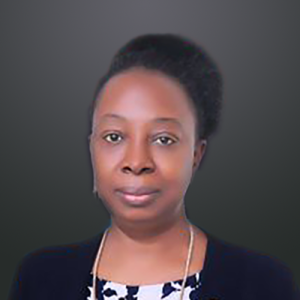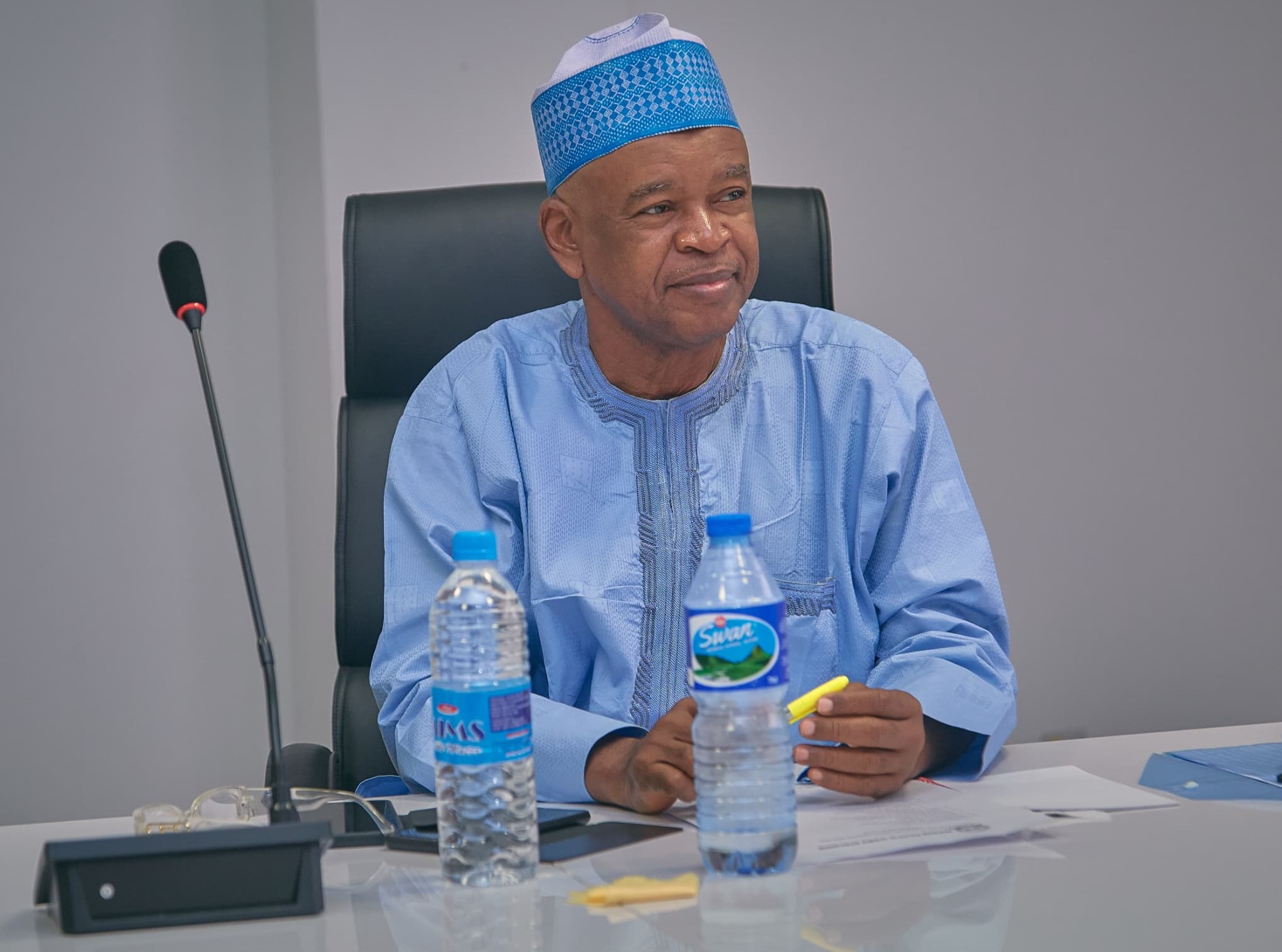By Adagbo Onoja
There’s a sense in which NPSA President, Prof Hassan Saliu’s 62nd birthday on December 22nd, 2024 shared so much with the remarkable paradox of the axe iterated in folk sociology in Idomaland. The axe is the implement with which trees are cut down and from which firewood is produced. The paradox is that the axe itself sleeps permanently in the cold. It is never, for once, obliged the benefits of firewood. There is something comparable to that when there was no systematic birthday essay(s) on Prof Saliu who has, all on his own, created an industry around the birthday of other political scientists in Nigeria. I am distinguishing between sketchy goodwill text messages and an argued piece on the subject matter.

A member of the Saliu led Exco of the NPSA
The discipline of Political Science is surely a huge industry in Nigeria, what with several state owned think tanks, a huge civil society basement with lots of works that rely on knowledge of Political Science and, of course, departments of Political Science in the universities along with the sub-disciplines that still remain within its empire: Political Theory, Critical Discourse Studies, Public Administration, International Relations, International Security, International Political Economy, Global Governance, Strategic Studies, Empire (named variously as Race in IRs or Postcolonial Studies) etc. The birthday of the president of the professional association of such a discipline certainly provides a good jump-off point to engage with the discipline even if only because Prof Saliu has invented a birthday series on other political scientists. Although published exclusively so far in Intervention, each posting has been well received/read if the readership graph from Facebook is anything to go by.
The paradox under reference is the first provocation for this piece. The second is using the NPSA president’s birthday to bring to his attention certain observable features about the discipline that the professional association should be keen in confronting now.
Notwithstanding one’s lack of detailed personal knowledge of Prof Saliu, he strikes one as someone inspired by an activist frame of mind. An expansive NPSA president in terms of presence in different spheres of the discipline – the universities, INEC headquarters, think tanks hooked on to the discipline by nomenclature, etc provide the evidence for that. Activist frame is, even in itself, a contextually good attribute because it speaks to inclusiveness, better coverage and messaging. The physical and mental costs of activism to a sitting NPSA leader can be enormous. Above all, coming as a leadership or tenure challenged with reviving an NPSA which had collapsed even in spite of strong presence of political scientists in the IBB regime, it is hard to deny the Saliu led Exco commendation.
There is a different sense in which the Saliu term is revealing. It is the Political Science of a generation of discipline cadres. In temporal terms, I don’t know how to define the generation. I would only say it is the generation following the post-Marxist generation in Nigerian Political Science. The late 1970s, all of the 1980s and much of even the 1990s were dominated by the ascendant, surefooted and domineering or activist minded political scientists and, by implication, the eclipse of “bourgeois scholars” in the discipline. The current NPSA president is of the period/generation after that. That is the sense in which they are a post-Marxist generation but strictly in Nigerian Political Science because Post-Marxism outside of that is a different kettle of theoretical and ideological fish, a disciplinary breakthrough and a game changing ontological intervention. Saliu’s leadership, disciplinary orientation and ideological direction are thus worth deeper or further observation.

A living ancestor of the discipline
Part of that further observation may have to begin here if readers will permit that arrogance since even the current Exco is clearly aware of the deficits most commonly associated with the current state of the discipline in Nigeria. There are many, many grounds to worry about regarding the state of the discipline but the bareness of the methodological component should be the most disturbing. Nigeria is damned too far, far back in that respect. It is not a question of which technique is better. The problem is that the number of techniques mentioned to students of the discipline (and I presume of all other disciplines except Literature) is too limited, ancient and, in all cases, without adequate history of the epistemological battle since Descartes. In all of one’s years at no less than three universities across Nigeria, only once did one hear anything about this background to methodology. It came from the UI sociologist, Oka Obono, at a CODESRIA workshop he was part of as a resource person.
Today across Nigerian universities, students are bombarded with content analysis, survey, interview, FGD, etc without a mention of the metatheoretical debates that foregrounded these techniques. Confused and irritated, the students resort to concocting data just to get out of the maze whereas they would have been desirous of plugging into field work and discovery if it were otherwise.
The NPSA is at a better junction (not juncture) to unmake this past because it is the umbrella of political scientists who teach the (methodology) courses. Neither the NUC nor any other agency or player in the arena is as equipped to correct this because when a course is allocated to an academic, s/he and s/he alone can decide how the course is taught. The professional association has extra leverage because it is not all about stiff formality. As such, it can influence the examples an academic deploys to illustrate arguments or cases in class. No laws or state agencies can do this. Of course, whether a particular course has been well or badly taught can be detected but it cannot be anticipated.

The regulator!
The NUC now has a new leadership. It is possible the new leadership comes to terms with the treacherous path of that organisation since 1999 and charts a new course for Nigerian universities, with particular reference to the methodological crisis, a tip of which has been mentioned above. But NUC or no NUC, professional associations such as the NPSA must also position themselves in the remaking of things.
For sure, the current Exco can superintend the transformation process, what with a ‘president’ Saliu who obtained a BSc in the discipline from Bayero University, Kano in 1987, MSc from what is now Obafemi Awolowo University, Ile-Ife in 1989 and a PhD from Kano in 1995, being best student at BSc level and a distinction at doctoral level examined by Prof. Julius Okolo. With 12 books to his credit, amongst them, Approaches to the Study of International Relations (2019),Topical Issues on Research Methodology (2018), Aspects of Nigeria’s Foreign Policy in the Fourth Republic (2018), Nigeria’s Foreign Policy Under the Fourth Republic (2016), Democracy, Governance and international Relations (2010), Essays on Nigeria’s Foreign Policy (2006) in two volumes, the NPSA is not experiencing the collapse of groomed leadership all the other sectors of the Nigerian society are experiencing. This is more so that he consulted for the UNDP, the EU, FGN of Nigeria and served in the Exco of the NPSA for cumulatively 14 years, the longest so far because he became the president in 2021 after serving as Vice-President for six years. This is a very positive statement for Nigeria from the NPSA because, except for VCship at the University of Ibadan, (which Intervention cannot vouch if it is still there) it doesn’t look like there is any other sphere in Nigeria where leaders are groomed. The story of how this plays out in the Nigerian Army as told by a former Army chief, Chris Alli, remains revealing but it is even worse in other realms now, including the civil society. Disturbing signals of a colonised future!
The NPSA itself has witnessed internal modernisation through such activities as the Billy Dudley lectures, research for the NPSA, introduction of platform, monograph, writing of tributes, organising the first meeting of board of trustees, issuing ten public releases, the highest so far, organising meetings for agenda setting for the Presidency and the 10th National Assembly, migrating to e-registration for members, organising 8 physical programmes, incorporating zonal structures into NPSA workings, nominating members for media interviews, collaborating with MacArthur Foundation, CISLAC, etc during the tenure of this Exco.
From this, it can be inferred that the team can do more, more than what it has already done. Or that Prof. Saliu can be said to have paid his dues as to be in a position to lead the process of transforming Political Science in Nigeria from the sort of thing David Easton used to call “intellectual foundation stones” to where the discipline has moved to today. It will be a great transformation if the discipline is moved to where those who study it in Nigeria can read and understand what those who study it any other part of the world are writing. Right now, this is not the case, pointing at how gargantuan the task of transforming Political Science in Nigeria can be. Nevertheless, it is Happy 62nd birthday to Prof Hassan Saliu, incumbent NPSA president!




























